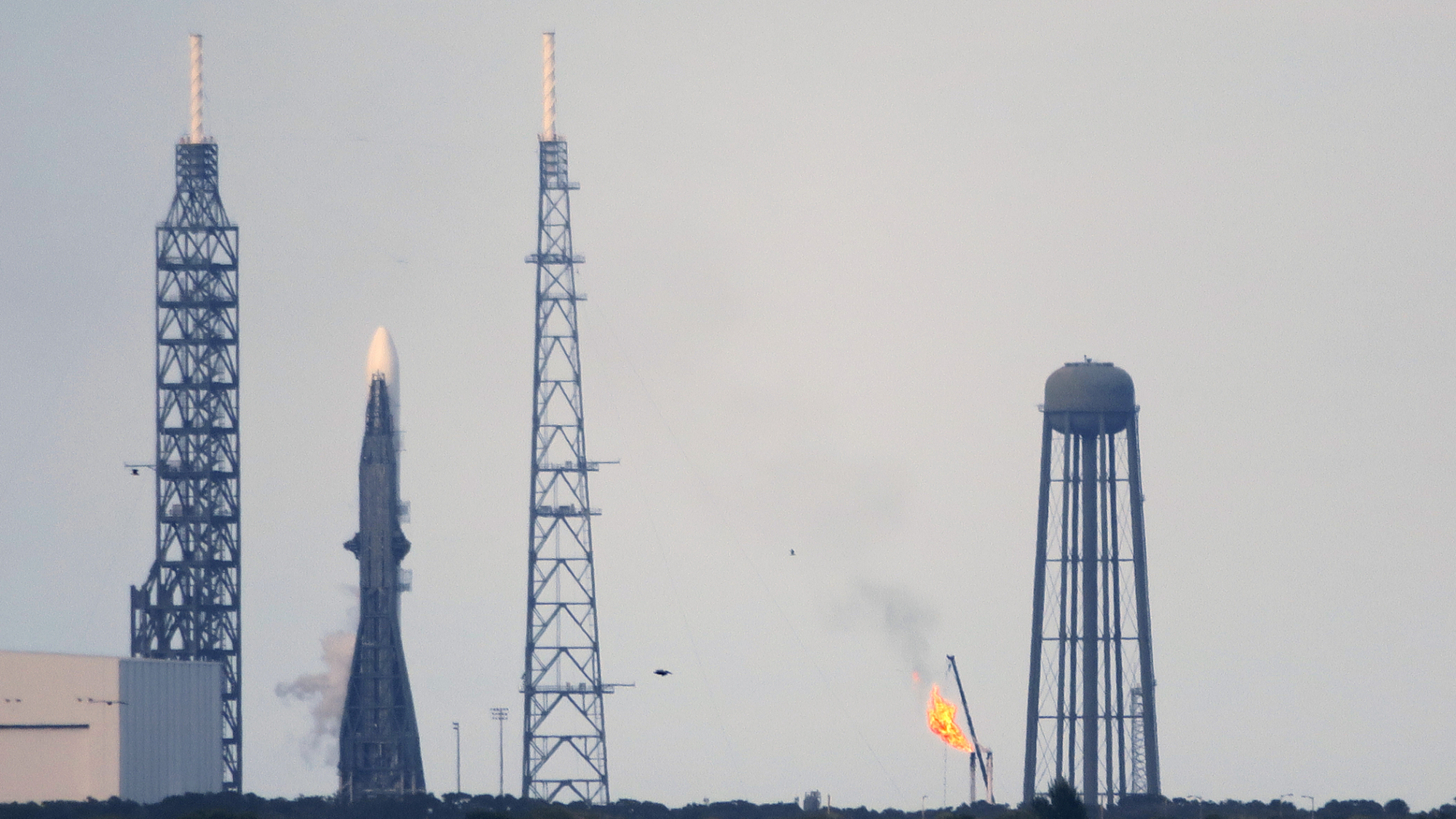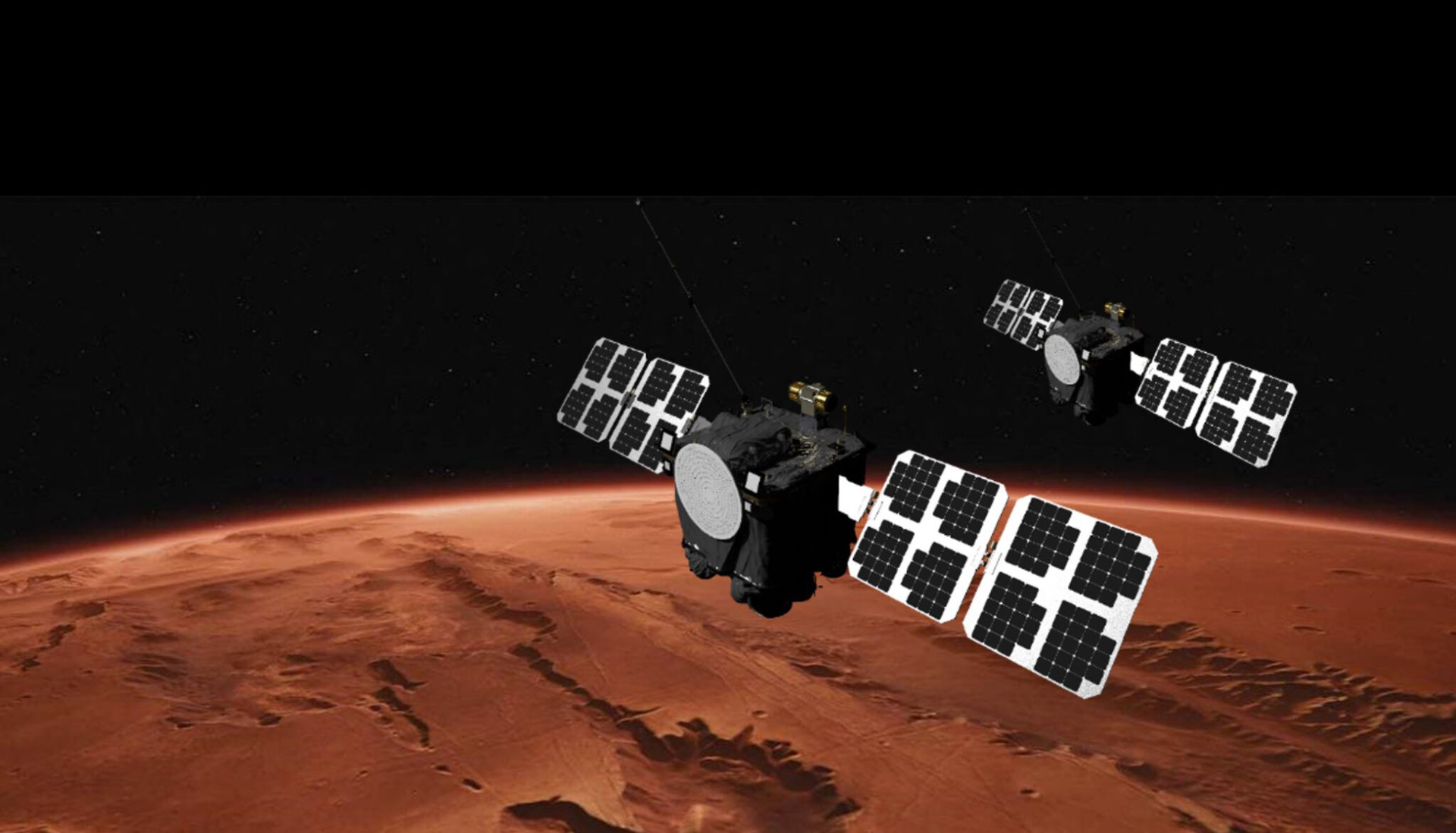Intense solar storm delays Blue Origin launch of NASA Mars probes
There's definitely some irony in ESCAPADE's Mars space weather probes being delayed by space weather.

Update for 12:30 a.m. ET on Nov. 13: Blue Origin is now targeting Thursday (Nov. 13) for the ESCAPADE launch. Liftoff will occur during a window that's open from 2:57 p.m. EST to 4:25 p.m. EST (1957 to 2125 GMT). Read our launch preview for more information.
Blue Origin has scrubbed today's launch attempt of its second-ever New Glenn rocket.
The delay today (Nov. 11) follows a Nov. 9 launch attempt that was also called off due to bad weather. Now, extreme solar storms, which spawned aurora borealis as far south as New Glenn's Florida launchpad, have pushed the mission once again.
New Glenn had targeted a 2:50 p.m. EST (1850 GMT) liftoff from Blue Origin's Space Launch Complex-36, at Cape Canaveral Space Force Station today (Nov. 12), to send NASA's twin ESCAPADE orbiters to Mars. "However, due to highly elevated solar activity and its potential effects on the ESCAPADE spacecraft, NASA is postponing launch until space weather conditions improve," Blue Origin wrote in a post on X.

A new ESCAPADE launch date has yet to be announced, but Blue Origin is evaluating future dates. "We are currently assessing opportunities to establish our next launch window based on forecasted space weather and range availability," the company said in their post.
The company will have to work out an exception for a new launch window with the Federal Aviation Administration, which announced an indefinite halt to all commercial launches during daytime hours to ease strain on air traffic controllers and commercial flights during the ongoing government shutdown.
NASA's ESCAPADE mission (Escape and Plasma Acceleration and Dynamics Explorers) is the agency's first mission to Mars since the Perseverance rover launched in 2020. The Rocket Lab-built orbiters are designed to help research how the solar wind contributes to the depletion of Mars' atmosphere, among other studies.
Breaking space news, the latest updates on rocket launches, skywatching events and more!
The mission, and its delay, come at a particularly volatile time for Earth's star. As the current period of solar activity ramps up, our home planet, too, has experienced some significant interactions between the atmosphere and incoming space weather.
One of the most energetic sunspot groups of the current solar cycle, AR4274, recently released a powerful G4 coronal mass ejection straight toward Earth. Its impact caused widespread aurora overnight Tuesday (Nov. 11), and led to New Glenn's subsequent delay.

Josh Dinner is the Staff Writer for Spaceflight at Space.com. He is a writer and photographer with a passion for science and space exploration, and has been working the space beat since 2016. Josh has covered the evolution of NASA's commercial spaceflight partnerships and crewed missions from the Space Coast, as well as NASA science missions and more. He also enjoys building 1:144-scale model rockets and human-flown spacecraft. Find some of Josh's launch photography on Instagram and his website, and follow him on X, where he mostly posts in haiku.
You must confirm your public display name before commenting
Please logout and then login again, you will then be prompted to enter your display name.
